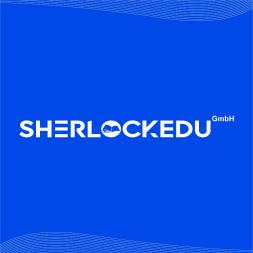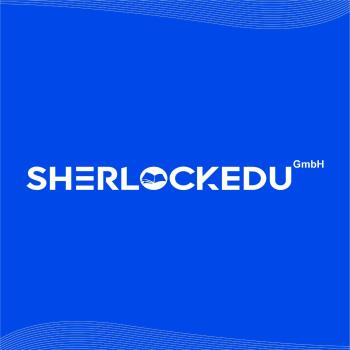
SUSTAINABLE SCHOOLS- EDUCATORS LEADING ENVIRONMENTAL CHANGE-VIENNA
Throughout the course, participants will engage in a variety of activities, including lectures, discussions, hands-on workshops, site visits, and collaborative projects. They will also have opportunities to share experiences, learn from each other's perspectives, and draw inspiration from successful Erasmus+ projects focusing on environmental learning and sustainability in schools.
Description
Day 1: Introduction to Environmental Learning and Waste Management
- Course overview and objectives
- Understanding the importance of environmental education in schools
- Exploring the concept of waste management and its significance for sustainability
- Introduction to eco-friendly school initiatives
- Overview of Erasmus+ projects focused on environmental learning and waste management
Day 2: Waste Reduction Strategies in Schools
- Identifying sources of waste in educational settings
- Exploring strategies for waste reduction, including recycling, composting, and upcycling
- Implementing waste audits and developing action plans for waste reduction
- Case studies and best practices from Erasmus+ projects on waste management in schools
Day 3: Promoting Eco-Friendly Practices in the Classroom
- Integrating environmental education into the curriculum across subject areas
- Designing engaging and hands-on environmental learning activities
- Fostering a culture of sustainability and environmental stewardship among students
- Incorporating outdoor and experiential learning opportunities into environmental education
- Exploring Erasmus+ projects that promote eco-friendly practices in schools
Day 4: Creating Sustainable School Environments
- Strategies for greening school facilities and operations
- Implementing energy-saving measures and sustainable transportation options
- Designing green spaces and outdoor learning environments
- Collaborating with school stakeholders and community partners to promote sustainability
- Analyzing successful Erasmus+ projects focused on creating sustainable school environments
Day 5: Empowering Educators for Environmental Leadership
- Reflecting on personal teaching practices and attitudes towards sustainability
- Developing action plans for implementing environmental education and eco-friendly practices in participants' own schools
- Identifying resources and support networks for ongoing professional development in environmental learning
- Evaluating the impact of the course and setting goals for future environ
Learning objectives
- Understanding the importance of environmental education and sustainability in schools.
- Identifying the principles and practices of sustainable development and their relevance to educational settings.
- Exploring strategies for integrating environmental learning across the curriculum and throughout the school community.
- Learning effective waste management techniques and strategies for reducing, reusing, and recycling resources within the school environment.
- Developing skills in implementing eco-friendly practices and initiatives in school facilities and operations.
- Understanding the role of educators as leaders in promoting environmental awareness and action among students, colleagues, and the wider community.
- Exploring innovative teaching methodologies and resources for engaging students in environmental learning and action.
- Learning how to incorporate outdoor and experiential learning opportunities into environmental education initiatives.
- Identifying opportunities for collaboration with school stakeholders, community partners, and external organizations to support sustainability initiatives.
- Reflecting on personal teaching practices and attitudes towards sustainability, and identifying areas for growth and improvement.
- Developing action plans for implementing environmental education and sustainability initiatives within participants' own schools.
- Identifying resources and support networks for ongoing professional development in environmental education and sustainability leadership.
- Evaluating the impact of the course and setting goals for continued environmental education and action within participants' own schools and communities.
Methodology & assessment
Pedagogical Approaches: Teacher training courses typically employ various pedagogical approaches to model effective teaching practices. This may include lectures, interactive seminars, workshops, and hands-on teaching experiences.
Practical Teaching Experience: Practical teaching experience is a fundamental component of teacher training. Participants often have opportunities to observe experienced educators and engage in actual teaching in classrooms or educational settings. Feedback and guidance from mentors are essential during these experiences.
Collaborative Learning: Collaborative learning is often encouraged in teacher training courses. Participants may work in groups to develop teaching materials, lesson plans, and teaching strategies. Collaborative projects can promote the exchange of ideas and best practices.
Reflective Practice: Reflective practice is a crucial aspect of teacher training. Participants are encouraged to reflect on their teaching experiences, analyze their teaching methods, and consider how to improve their practice. Journals, written reflections, and discussions are common tools for fostering reflective practice.
Assessment
Written Assignments: Teacher training courses often include written assignments, such as research papers, case studies, or essays, on topics related to education and teaching methods.
Examinations: Some teacher training courses may include written examinations to assess participants' understanding of pedagogical theories, educational psychology, and other relevant subjects.
Professionalism and Communication: Assessment may also consider participants' professionalism, communication skills, and ability to collaborate with colleagues, parents, and students.
Feedback and Self-Assessment: Regular feedback from mentors and self-assessment are crucial components of teacher training assessment. Participants are encouraged to use feedback to improve their teaching skills
Certification details
- Completion Certificate: Upon successfully completing a teacher training course, you will typically receive a completion certificate or diploma from the training provider or institution. This certificate acknowledges your participation and successful completion of the training.
- Course Duration: The duration of teacher training courses can vary widely. Some may be short-term workshops or seminars, while others may be more comprehensive and span several weeks or months. The certificate may indicate the total number of hours or credits completed.
- Content and Curriculum: The certificate should outline the key topics, content, and skills covered during the training. This information helps future employers or educational institutions understand the scope of your training.
- Credits or Continuing Education Units (CEUs): In some cases, teacher training courses may offer academic credits or Continuing Education Units (CEUs). These credits can be valuable for professional development and may be recognized by educational authorities or institutions.
- Language of Instruction: If the teacher training course is conducted in a language other than your native language, the certificate may indicate your language proficiency level or the language in which the training was delivered.
- Evaluation and Assessment: Teacher training courses often involve assessments or evaluations of your performance. The certificate may include information about your performance in the training, such as grades or evaluations.
- Recognition and Accreditation: Ensure that the teacher training course and the institution providing it are recognized and accredited by relevant educational authorities or professional bodies. This can affect the credibility and transferability of your certificate.
Pedagogical Practices: If the training includes practical teaching experience or classroom observations, the certificate may highlight your proficiency in specific pedagogical practices or teaching methodologies.
Pricing, packages and other information
-
Price:400Euro
Additional information
-
Language:English
-
Target audience ISCED:Early childhood education (ISCED 0)Primary education (ISCED 1)Lower secondary education (ISCED 2)
-
Target audience type:TeacherCareers CouncillorHead Teacher / Principal
-
Learning time:25 hours or more
Upcoming sessions
Past sessions
More courses by this organiser

DIGITAL HORIZONS - EQUIPPING EDUCATORS FOR TECHNOLOGY-INTEGRATED LEARNING-ANTALYA

DIGITAL HORIZONS - EQUIPPING EDUCATORS FOR TECHNOLOGY-INTEGRATED LEARNING-ROME


